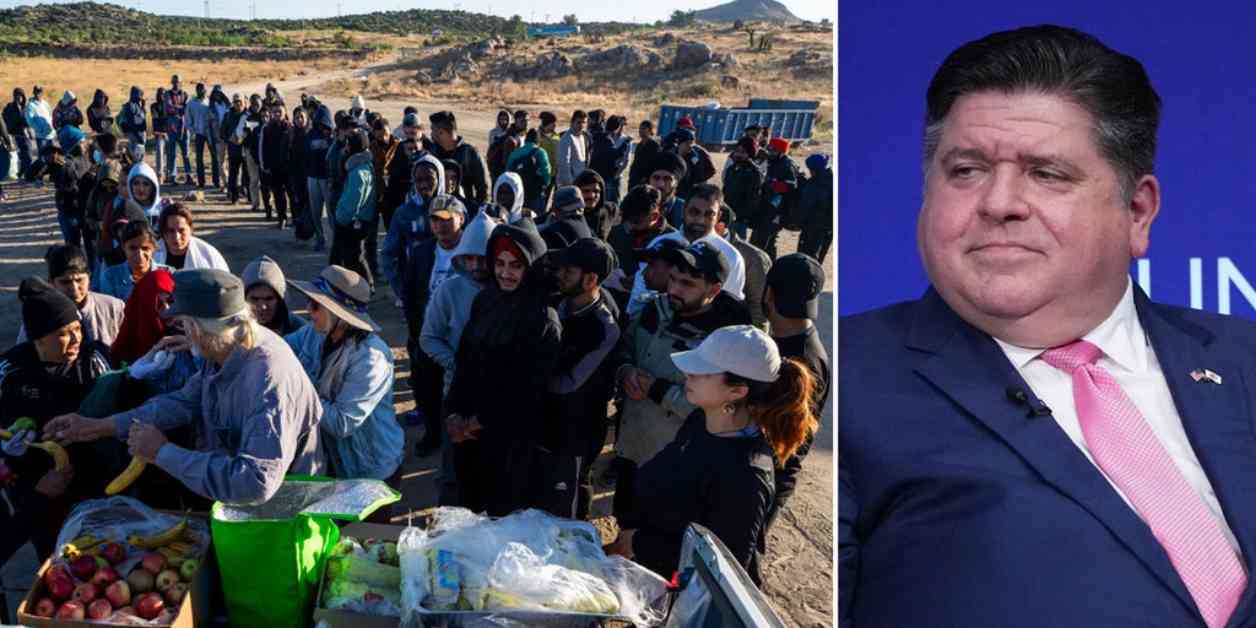The ongoing speculation about President Biden’s future as the Democratic presidential nominee for 2024 has raised questions about potential replacements, with Illinois Gov. J.B. Pritzker being one of the names in the mix. However, the crisis at the southern border remains a pressing issue for voters nationwide, shedding light on how Pritzker might approach the situation differently than the current administration.
While Pritzker has shown overall support for President Biden’s initiatives at the southern border, he has also been critical of the federal government’s handling of the crisis. In a letter to Biden, Pritzker emphasized the importance of providing refuge and dignity to those facing persecution, but expressed concerns that the crisis is overwhelming states like Illinois without sufficient federal support. He called for actions such as waiving fees for Temporary Protected Status (TPS), enhancing logistical coordination, and approving waivers for Medicaid and housing vouchers for migrants.
Pritzker also advocated for a federal task force dedicated to migrant resettlement and increased funding for states, local governments, and non-governmental organizations. He echoed the administration’s call for comprehensive immigration reform to address the broken immigration system and growing challenges faced by states and localities.
In addition to his efforts at the federal level, Pritzker has allocated significant state funding to address the influx of migrants in Illinois. Last year, he invested $160 million in shelter and wraparound services to support asylum seekers, and this year, he announced another $160 million for assistance. Despite Congress’s inaction, Pritzker remains committed to ensuring the safety and well-being of migrants in Chicago.
By supporting initiatives like the redesignation of Venezuela for TPS, Pritzker aims to provide protection and work opportunities for those in need, emphasizing the importance of reducing wait times for employment approvals and expanding protection status to build a better future for individuals and their families.
As the immigration crisis continues to unfold, Pritzker’s proactive approach underscores the need for collaboration between state and federal entities to address the humanitarian challenges at the southern border. While the debate over potential replacements for President Biden persists, Pritzker’s focus on practical solutions and compassionate policies sets him apart as a key figure in shaping the future of immigration reform in the United States.




